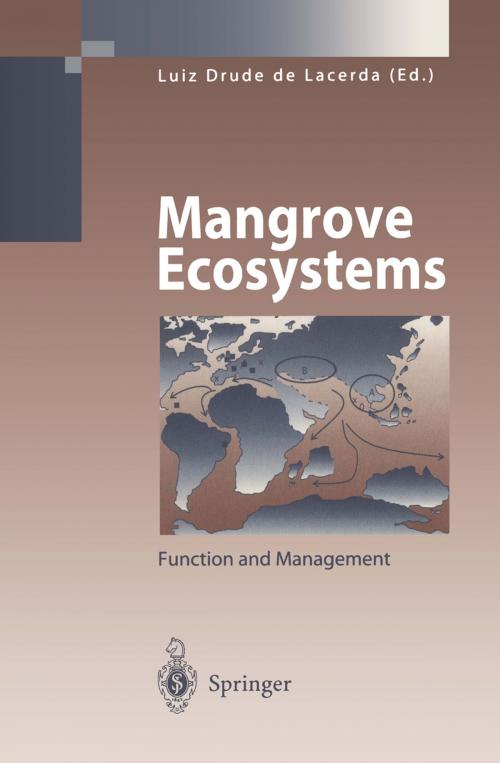Mangrove Ecosystems
Function and Management
Nonfiction, Science & Nature, Science, Earth Sciences, Geology, Geography| Author: | Volker Linneweber | ISBN: | 9783662047132 |
| Publisher: | Springer Berlin Heidelberg | Publication: | June 29, 2013 |
| Imprint: | Springer | Language: | English |
| Author: | Volker Linneweber |
| ISBN: | 9783662047132 |
| Publisher: | Springer Berlin Heidelberg |
| Publication: | June 29, 2013 |
| Imprint: | Springer |
| Language: | English |
Protection of the environment has nowadays become a major challenge and a condi tion for survival of future human generations and life on Earth in general. Yet it is still far too much of a dream or hope rather than a reality in the policy of our societies. Presently we are experiencing an unprecedented exponential growth of demography combined with a race for profit, resulting in excessive consumption particularly of en ergy, and a serious impact on the world ecosystems. Various types of pollutants and emerging new diseases not only disrupt the normal course of life, but also above this some of the atmospheric pollutants are most likely involved in the changing climate. We fear and literally shiver at the thought that the "changing climate" would ultimately disrupt the fragile thermodynamic equilibrium between the atmosphere and the oceans. Are we insensitive to these facts to the point of pushing our descendants, some genera tions ahead, into a new glacial period after a first period of warming up, at least, in northern Europe, like the one that took place 13 to 14 millennia ago? Surely the planet's nature is not prepared to be dominated by man and will go its way, whether humanity will be alive or dead.
Protection of the environment has nowadays become a major challenge and a condi tion for survival of future human generations and life on Earth in general. Yet it is still far too much of a dream or hope rather than a reality in the policy of our societies. Presently we are experiencing an unprecedented exponential growth of demography combined with a race for profit, resulting in excessive consumption particularly of en ergy, and a serious impact on the world ecosystems. Various types of pollutants and emerging new diseases not only disrupt the normal course of life, but also above this some of the atmospheric pollutants are most likely involved in the changing climate. We fear and literally shiver at the thought that the "changing climate" would ultimately disrupt the fragile thermodynamic equilibrium between the atmosphere and the oceans. Are we insensitive to these facts to the point of pushing our descendants, some genera tions ahead, into a new glacial period after a first period of warming up, at least, in northern Europe, like the one that took place 13 to 14 millennia ago? Surely the planet's nature is not prepared to be dominated by man and will go its way, whether humanity will be alive or dead.















